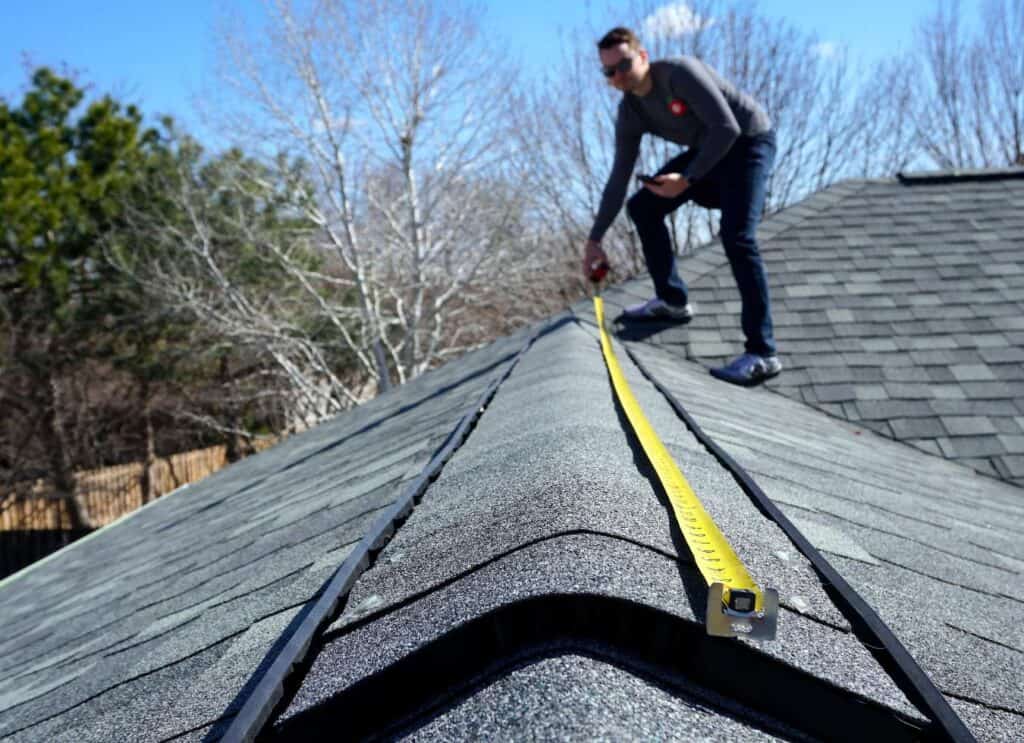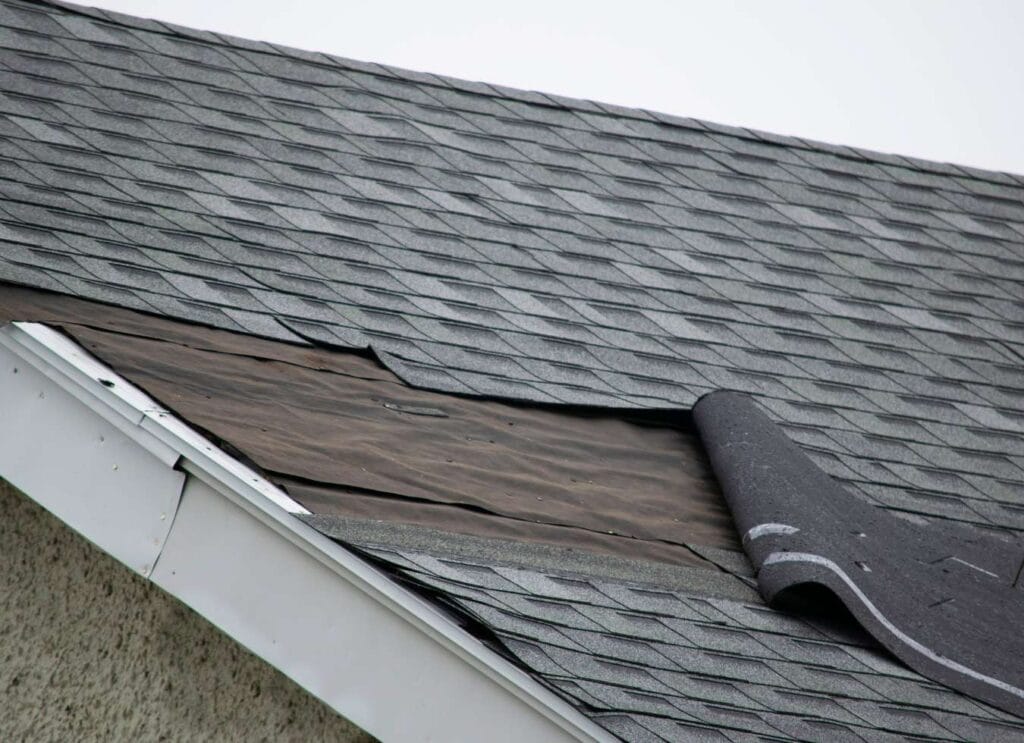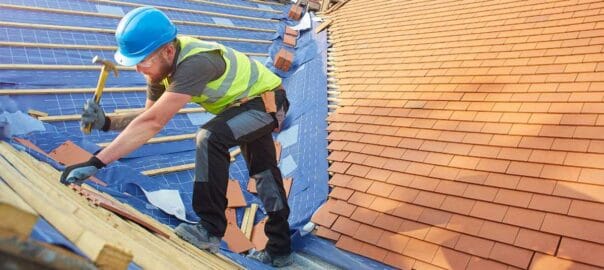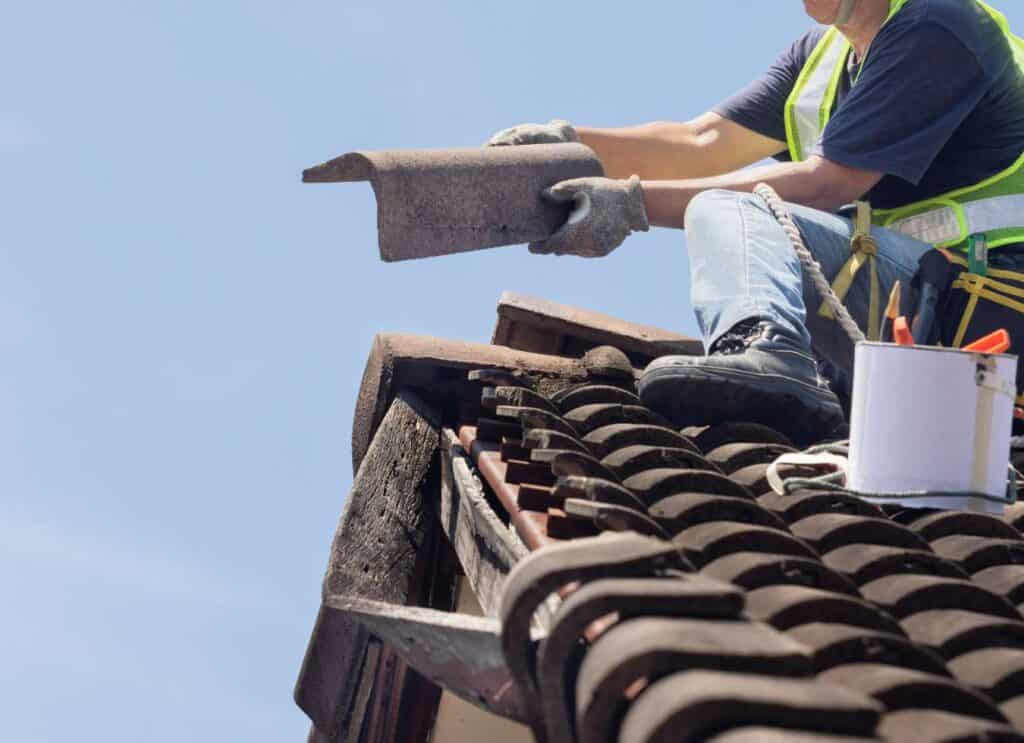Let’s face it—roof replacement is one of those things you need. This is an essential step in your roofing project. Don’t want to deal with it until you have to. It’s like getting a root canal: you know it’s necessary, but you’d prefer just to put it off. But eventually, that pesky leak or the warning signs of wear and tear on your roof shingles can’t be ignored. And trust me, when it’s time for a roof replacement, you want it done right—and you want to know exactly what’s coming your way.
So, whether you’re dealing with hail damage (hello, Colorado weather!) or just noticing that your roof has more patches than your favorite pair of jeans, it’s time to break down the roof replacement process. Grab a cup of coffee, kick your feet up (preferably not on your roof—please), and go through what you can expect from consultation to installation. And don’t worry, we’ll make this as fun as a roof inspection can be. (Yes, it’s possible. Call us and see!)

1. The Consultation: Let’s Talk About Your Roof’s New Chapter
The first step in the roof replacement process is the consultation. Think of this as the first date—you want to ensure you’re both a good match before committing to a relationship.
What Happens During the Consultation?
When you call a local roofing company like Denny’s Roofing, you’ll schedule a consultation for your roofing project. A roofing expert will come out to assess the current state of your roof, provide a thorough inspection, and then give you a professional opinion. During this visit, they’ll look for damage to the drip edge and other critical components.
- Damage: Damage to roof shingles can lead to more serious issues if not addressed promptly. This could be from hail, wind, or age. They’ll check for cracked or missing shingles, rusted or missing flashing, issues with venting, or any other signs that the roof’s integrity is compromised.
- Structural Issues: Sometimes, hidden problems with the roof’s structure, like rot in the decking or issues with the underlying support beams, exist.
- Ventilation & Insulation: If your roof needs to be replaced, this is also a good time to evaluate your home’s ventilation and insulation. Proper ventilation helps regulate attic temperatures and prevent issues like ice dams or mold buildup.
What Will They Ask You?
Expect a few questions from your roofer as well. Things like:
- How old is your current roof? This helps determine whether a repair is possible or if a complete replacement is needed.
- If it’s not an Insurance Claim, what’s your budget? Roof replacements can vary in price, depending on your chosen materials (asphalt, metal, slate, etc.). Your roofer should be able to give you an estimate that fits within your budget.
- Do you have specific design preferences? You might not be thinking of the design much (after all, it’s just the roof), but materials and colors can impact the overall look of your home. If you’re going for curb appeal, let your roofer know.
- Are you a Broncos, Rockies, Avs, or Nuggets fan? If you are… who is your favorite player? Tell us about the last game you went to.
2. Permits and Paperwork: Because the Government Always Wants to Be Involved
Before the roof replacement process can officially begin, permits are often required. (Thanks, local building codes!) Don’t worry; your roofing contractor should handle most of this. But here’s what you should know:
- Do You Need a Permit for Your Roofing Project? Yes, in most cases, roof replacements require a permit, except in rare cases. Building codes vary by city, but your roofing company should be familiar with the requirements in your area. They’ll handle getting the necessary permits, so you don’t have to waste time navigating red tape.
- Why Are Permits Important? Permits are essential because they ensure your roof replacement is up to code. It protects you, the homeowner, by ensuring the work is done safely and correctly. Also, if you ever decide to sell your home, having proper permits for the work done will give potential buyers peace of mind.
- Timeline and Scheduling: Once the permits are sorted, your contractor will give you a timeline for the roof replacement. In Colorado, roof replacements can typically take anywhere from The roofing project, which may take 1 to 3 days, depending on the weather conditions, the size of your home, the type of roofing material, and the weather. While your roofer may need to work around the weather (no one wants to install shingles in freezing weather or during a thunderstorm!), they should be able to provide you with an estimated start and end date.
3. Preparation: Getting Your Home Ready for the Big Day
Now that the paperwork is out, it’s time to prep for the installation. Think of this as getting your home ready for a major party—except this party involves a lot of tools, ladders, and debris. Here’s what you need to know:
- Protect Your Property: Roof replacement can get messy. It’s not like a minor home repair; debris, nails, and old roofing materials will be scattered around. But don’t worry; your roofing crew will lay tarps around the area to catch most of the debris. Still, it’s a good idea to:
• Move any outdoor furniture or delicate plants out of the way.
• Close windows and doors to keep dust and debris from blowing inside.
• Keep your pets and kids inside for safety reasons. The last thing you want is for your dog to chase a nail gun (trust me, it’s not as fun as it sounds). - Clear Your Attic and Roof Access: If you have an attic, it’s a good idea to clear a path for your contractors to inspect the interior of your roof if needed. This also makes moving any insulation that needs to be checked or replaced easier.
- Let Your Neighbors Know: A roof replacement is not exactly a quiet affair. Giving your neighbors a heads-up is considerate, especially if you live in close quarters (think townhomes or row houses). A simple “Hey, just so you know, I’m getting a new roof today” goes a long way. You’ll be amazed how much people appreciate the heads-up!
4. The Installation: What to Expect on the Big Day
This is it—the day your roof gets a much-needed makeover!
Here’s what to expect:
- Morning Kickoff: Your roofing crew will likely arrive early— around 7:00 or 8:00 a.m. They’ll work quickly, tearing off the old shingles or roofing materials. This part can get slightly noisy (you might feel like living inside a roofing project). Transformers movie, but with fewer robots and more hammering).
- Removal of Old Roofing Materials: The first step is removing your old roof. Don’t be surprised if this part seems like a demolition zone. Old shingles, nails, flashing, vents, and debris will be removed and placed into large containers for disposal. This is why it’s essential to clear the area around your home beforehand. Depending on the size of your roof, this should be done in ½ a day.
- Inspection and Repairs: Once the old roof is off, the contractor will inspect the underlying roof deck for any damage. If they find any damage that needs fixing, such as issues with the valley or chimney, they’ll get to work on repairs and let you know if they see a hidden problem. This could involve replacing rotten wood, securing loose boards, or fixing any structural damage on a rare occasion.
- Installing the New Roof: Now comes the fun part: installing the new roof. Depending on your chosen materials (asphalt shingles, metal, tile, etc.), the crew will start putting on the new underlayment protection and covering layers. This part is relatively quick and might take anywhere from a few hours to a full day, depending on the size of the home and the type of material.
- Cleanup: Once the roof is installed, your contractors will carefully clean up the area, removing any nails or debris from your yard. A professional roofing company will use magnets to cover the area to ensure nothing is left behind. You don’t want to step on a nail barefoot (trust me, I’ve heard the horror stories).
5. Final Inspection and Walkthrough
Once the job is completed and your gutters are installed, your roofing contractor should do a final inspection to ensure everything is up to code and looking good. They should also walk you through the roofing project to ensure your satisfaction with the results.
Your roofing contractor may also advise you on maintaining your new roof. Regular inspections, keeping gutters clean, and trimming overhanging branches are all part of keeping your roof and starter shingles in tip-top shape.

Other Questions We Receive About Whether It’s Time To Replace Your Roof
Q: What is the roof replacement process?
A: The roof replacement process involves several steps, including inspecting the roof, preparing your home for a roof replacement, removing the old roofing material, installing the new roofing material, and ensuring the roof is properly sealed and finished. Each step is crucial to ensure the longevity and effectiveness of your new roof.
Q: How do I prepare my home for a roof replacement?
A: To prepare your home for a roof replacement, you should clear the area around your home, move vehicles away from the work zone, and cover any outdoor furniture. Additionally, informing your neighbors about the upcoming work is advisable to minimize disruptions.
Q: What factors affect the average roof replacement cost?
A: The average roof replacement cost can vary depending on several factors, including the size, the type of roofing material chosen, labor costs, and any additional features such as skylights or ventilation systems. Getting quotes from reputable roofing contractors is essential to understand the total price.
Q: How long does the roof replacement process typically take?
A: The roof replacement process typically takes one to three days, depending on the roof’s size and the project’s complexity. Weather conditions can also impact the timeline, so it’s essential to plan accordingly.
Q: What types of roofing materials are available for a new roof?
A: Various roofing materials, including asphalt shingles, metal roofing, tile, and slate, are available for a new roof. Each material has advantages in terms of durability, cost, and energy efficiency, so choosing the right material for your needs is essential.
Q: How do I choose the right roofing contractor for my roof replacement?
A: To choose the right roofing contractor for your replacement, look for a professional contractor with a good reputation, proper licensing and insurance, and positive customer reviews. It’s also beneficial to obtain multiple quotes and ask for references to ensure you select a qualified contractor.
Q: What should I expect on the day of my roof replacement?
A: On the day of your roof replacement, a crew of roofing professionals will arrive early to start the work. They will begin by removing the old roofing material, inspecting the roof deck for damage, and installing the new shingles or other roofing material. You may hear noise from the work, so staying safe and keeping pets indoors is wise.
Q: How can I ensure my new roof is energy efficient?
A: To ensure your new roof is energy efficient, consider choosing roofing materials that reflect sunlight, such as light-colored shingles or metal roofing. Additionally, proper insulation and ventilation in your attic can enhance energy efficiency and prolong the life of your roof.
Q: What happens if the condition of my roof isn’t ideal for replacement?
A: If your roof’s condition isn’t ideal for replacement, your roofing contractor may recommend repairs or a complete tear-off before installing a new roof. Addressing any underlying issues is essential to ensure the longevity of your new roof installation.

Wrapping Up: You’ve Got a Brand-New Roof!
A roof replacement might seem like a big job, but it can be a smooth, stress-free process with the right roofing contractor (like Denny’s Roofing!). From consultation to installation, you’ll know exactly what to expect—and you’ll be able to enjoy your new roof for years to come, whether it’s keeping you safe from snowstorms or sunny days.
If you’re ready to start your roof replacement journey in Colorado, call Denny’s Roofing today. We’ll walk you through the process, provide a free estimate, and ensure your home gets the roof it deserves. Because let’s face it—your roof is the unsung hero of your home, and it deserves a little TLC.





